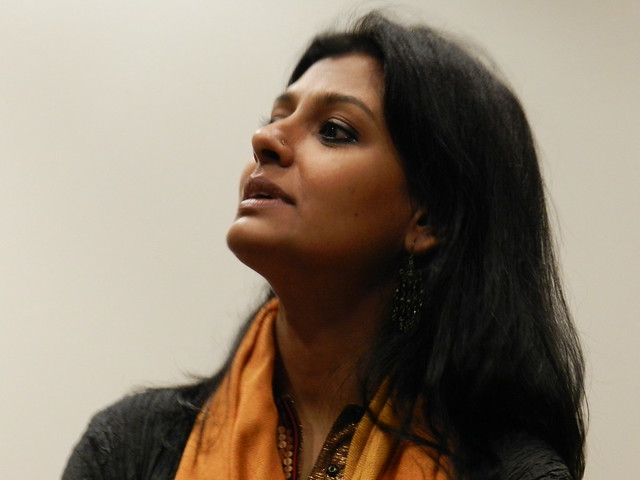By TwoCircles.net special correspondent
Cambridge, Massachusetts: Actress and director Nandita Das said that the story of communal violence in Gujarat was very personal to her as she has been involved in the issue of sectarian violence for a long time. Das made the comment while interacting with the audience at the famed Massachusetts Institute of Technology (MIT) after the screening of her movie “Firaaq.”
Recalling the dark days of 2002, she said many of her friends worked in Gujarat among the survivors of the genocide of Muslims there. She learned first-hand many personal stories of the survival and loss. Das held a series of talk in various college campuses across India and she felt disturbed at the prejudice and justification of violence that came out during her conversations with the students. “Firaaq,” Nandita Das said was an attempt to channelize her helplessness in a constructive way.
Muslims continue to face harassment not only in Gujarat but rest of India too. “The imposition of a singular identity is a big struggle for Indian Muslims, more so over the years, when they are being asked questions like are you an Indian first or a Muslim first?”
Affirming her faith in Indian culture and ethos she said, “Indian fabric is very secular and therefore despite 2002 carnage we have a more centrist party and not a right wing party at the national level.” She said she firmly believed that Narendra Modi will not be a Prime Ministerial candidate for the 2014 elections.

Nandita Das at MIT on Oct 26, 2011
“Firaaq,” released in 2008, is directorial debut of Nandita Das. It has won a number of national and international awards. Das said “Firaaq” is not just about Gujarat but has a universal theme and that’s why audience the world over has been able to connect and move by the stories depicted in the film.
The movie follows five main stories taking place within a period of 24 hours about a month after the Gujarat genocide. Das said this is the most crucial time when all appears to be calm and peaceful but this is a very dangerous period because we think everything is normal now. “You just have to go to certain places in the city and you will know that scars are so deep that they have not healed though everyone else in the city seemed to be talking about development and progress.”
Answering a question she said that one has to remain optimistic and she is optimistically optimistic. When asked how has the nature of communal riots has changed over the years in India, Das said that it is incorrect to call many of these violent incidents as riots e.g. 1984 anti-Sikh violence was not riots but a pogrom . “Increasing, violence with the sanction of the state is happening which is much more dangerous than violence between two communities. “
In the end she said we all struggle on “how do we make human life and human suffering more at the center of things as opposed to the notion of “development” “?
Nandita Das is in the US on the invitation of International Women’s Forum (IWF). She will be inducted into IWF’s Wall of Fame on Friday.
Link:
http://www.firaaqthefilm.com/

